Bringing workers together to fight for tax justice

Network of Unions for Tax Justice
Network of Unions for Tax Justice
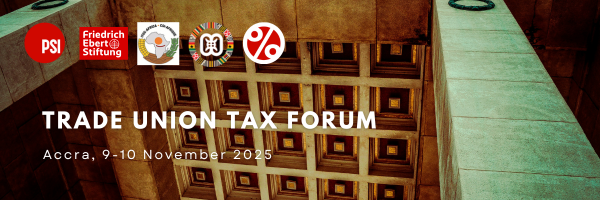
2025 Trade Union Tax Forum: Uniting labour power for global tax justice
Public Services International (PSI), Friedrich-Ebert-Stiftung (FES), ITUC Africa and the global Network of Unions for Tax Justice (NUTJ) look forward to welcoming trade union leaders and senior officials from 9–10 November 2025 at the Central Hotel – Ridge, Accra, Ghana.
Held just ahead of the PSI Regional Conference for Africa and Arab Countries (AFRECON), this year’s forum will be a key moment to build regional and global coordination around tax justice priorities.
This event is exclusively for trade union representatives (by invitation only). One session will include dialogue with civil society and intergovernmental organisations.
Please request to attend the forum via this form. In-person registration has now closed, but virtual registration is encouraged.
Click the arrows below to learn more about this year's Trade Union Tax Forum.
The 2025 Trade Union Tax Forum will be held in the margins of PSI’s AFRECON event in Accra, Ghana. For additional practical information on accommodation, transport, and other arrangements, please visit the AFRECON 2025 information page.
About the 2025 Trade Union Tax Forum
The Forum will address tax justice across three interconnected dimensions. First, it will focus on national reform, with trade unions sharing experiences of transitioning from protest to policy influence. Sessions will examine effective advocacy, communication strategies and legislative engagement. A prime example is the Corporate Alternative Minimum Tax (CAMT), a draft legislation developed by West African unions and researchers to ensure multinationals pay their fair share.
Second, the Forum will take stock of the evolving international landscape. As traditional powers like the United States step back from global tax reform efforts, opportunities have emerged for more representative leadership. The Africa Group has been instrumental in this transformation, from initiating the UN resolution on inclusive international tax cooperation to currently shaping the resulting Framework Tax Convention.
Third, the Forum will strengthen alliances and build coordinated strategies for the year ahead. Trade unions and civil society allies will identify shared priorities and map opportunities for joint action. With tax justice campaigns gaining momentum globally, coordinated efforts across borders are essential to match the scale of multinational tax avoidance.
This work comes at a critical time. Africa faces an estimated annual SDG financing gap of US$ 1.67 trillion, yet many countries remain well below the 15% tax-to-GDP benchmark set by the African Union. Ghana and Nigeria, for example, are at 14 and 7.9% respectively. As governments face mounting fiscal pressures, large corporations continue shifting profits and exploiting loopholes, draining resources needed for health, education, climate resilience and care systems. Across Africa and the Global South, tax justice remains essential for mobilising domestic resources, financing quality public services and reducing dependence on external aid.
Through coordinated fair tax advocacy, trade unions are defending the foundations of social and economic development, tackling inequality and delivering genuine economic sovereignty.
Agenda
Day 1 – Sunday, 9 November
11:30 – 12:00 | Arrival and registration |
12:00 – 13:00 | Lunch |
13:00 – 13:30 | Welcome and opening remarks Speakers:
|
13:30 – 14:00 | Fireside chat: why the struggle for tax justice is a struggle for dignity? Speaker:
Facilitated by: Séverine Picard, Coordinator of the Network of Unions for Tax Justice |
14:00 - 14:30 | Coffee break |
14:30 – 16:00 | Item 1. Make change at home (1) – from protest to Parliament: leveraging union influence at all levels
This panel will bring together organisers who’ve led successful advocacy and corporate campaigns to share how they built influence, overcame challenges, and moved from mobilisation to real reform. Speakers:
Moderated by: Jesse Saidu, PSI Communications Coordinator for Africa & Arab Countries |
16:00 – 17:30 | Item 2. Make change at home (2) – a labour proposal for fair minimum taxation
A look at a draft legislative proposal designed from within the region to ensure multinationals pay a fairer share. The Corporate Alternative Minimum Tax (CAMT) offers a practical tool for tackling one of Africa’s most entrenched tax injustices — large profits going untaxed. Developed by unions and allied experts, it’s a model others could adapt. Speakers:
Moderated by: Faith Lumonya, PSI Tax, trade, and Digitilization Coordinator for Africa & Arab Countries Supporting documents:
|
17:30 — 17:40 | Day 1 closing remarks by Joel Akhator Odigie, Secretary General, ITUC-Africa |
18:30 – 21:00 | Dinner (by invitation only) at the Afrikiko River Front Resort (shuttles from the Central Hotel will leave at 18:30) |
Day 2 – Monday, 10 November
08:30 – 09:00 | Welcome and arrivals |
09:00 – 10:30 | Item 3. Towards a new global tax governance? - State of play at the United Nations and the OECD
An update on the negotiations for a UN tax convention, and recent OECD developments. We’ll hear from experts and high level policy makers on expected negotiation outcomes and reflect on what it could mean for workers and tax justice worldwide. Speakers:
Moderated by: Séverine Picard, Coordinator of the Network of Unions for Tax Justice Stay tuned for more confirmed speakers Supporting document: |
10:30 – 12:00 | Item 4. Building alliances - Exchange of views with civil society on priorities and areas of shared action
An open exchange with civil society allies to identify shared goals and opportunities for joint action. The discussion will help map out common priorities for 2025 and strengthen coordination in the fight for tax justice.
Moderated by: Joel Akhator Odigie, Secretary General, ITUC-Africa Stay tuned for more confirmed speakers |
12:00 – 13:30 | Lunch |
13:30 – 15:30 | Item 5. What’s next for trade union action? Strategic and policy discussion
A working session to take stock of union efforts in 2025 and chart the path ahead. We’ll reflect on what’s working, where we need to grow stronger, and how to align our strategies for greater impact in 2026. |
15:30 – 16:00 | Coffee break |
16:00 – 17:00 | Closing: Where next for tax justice in Africa?
|
Venue details
Trade Union Tax Forum venue (9–10 November)
Central Hotel – Ridge
5 Julius Nyerere Avenue, North Ridge, Accra, Ghana (GA-053-0153)
Hotel website • Google Maps
Dinner venue (9 November)
A dinner will be held for invited participants only. Attendance is by prior confirmation.
Afrikiko River Front Resort
Akosombo, Ghana
Restaurant website • Google Maps
AFRECON venue (following the Trade Union Tax Forum)
Kempinski Hotel Gold Coast City Accra
Ministries PMB 66, Gamel Abdul Nasser Avenue, Accra
Speakers
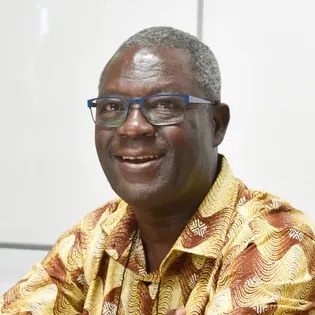 | Charles Abugre is a Ghanaian and a Development Economist by training. He currently heads the international secretariat of the International Development Economics Associates (IDEAs) which is based at the University of Ghana, Legon. See www.networkideas.org. He previous taught at Swansea University, headed the United Nations Development Programmes (UNDP's) Africa regionalwork on the Millennium Development Goals and the Global Advocacy and Policy Division of Chirstian Aid UK among several other roles in Ghana and other parts of the world. Charles was instrumental in the launching of the tax justice campaign while at Christian Aid, and until recently was a non-executive board member of Tax Justice Network UK and still serves on the technical advisory committee of Tax Justice Network Africa (TJNA). He is associated with the creation of many campaign and development organisations in Ghana and beyond. |
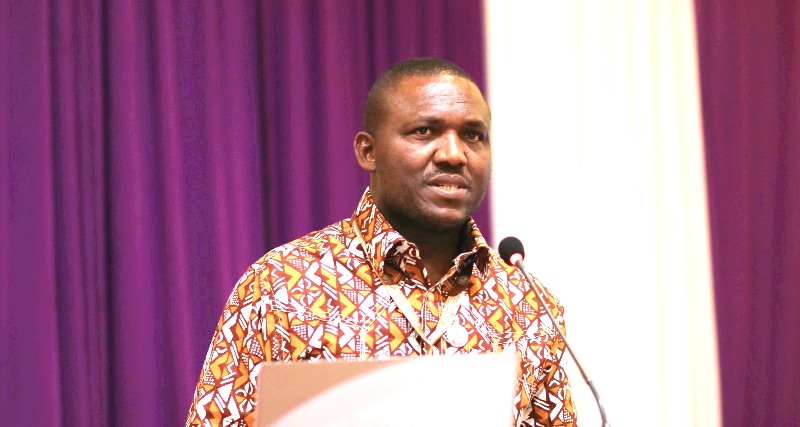 | Joel Akhator Odigie is the General Secretary of ITUC-Africa, elected at the 5th Delegates Congress of the International Trade Union Confederation - Africa (ITUC-Africa) in November 2023. A Nigerian activist and trade unionist, he has over two decades of organising experience. Joel previously served as the Deputy General Secretary of ITUC-Africa. He holds a Master’s degree in Labour and Globalisation from the Berlin School of Economics and Law. |
 | Bernard Anaba is the Policy and Programmes Lead at ISODEC in Ghana and the National Coordinator for PWYP Ghana. He has over 12 years of experience as a Policy Analyst specialising in Economic Justice Advocacy. Bernard has coordinated various advocacy networks, including the Tax Justice Coalition-Ghana, and has led social accountability initiatives across 16 districts in Ghana. |
 | Dr. Hod Anyigba is a distinguished economist and policy strategist renowned for his work in labour economics, macroeconomics, trade and development. As Chief Economist of ITUC-Africa and Executive Director of the Africa Labour Research and Education Institute (ALREI), he drives evidence-based reforms that bolster trade unions, safeguard labour rights and spur economic transformation across the African continent. With a rich background in academia, research and consultancy for leading global institutions, he equips unions to engage effectively with the SDGs, AfCFTA, sovereign debt and macroeconomic policy for the benefit of African workers. An avid author and researcher, Hod has published in ranked peer reviewed journals and co-authored two Springer books on economics and finance. He has successfully supervised over 20 PhD economics theses from various leading global universities and served as Associate Professor of Economics in his previous career in Academia. He is passionately committed to advancing decent work, fair wages and sustainable growth for Africa. |
 | Oumar Ba is the General Secretary of the Syndicat Autonome des Travailleurs des Eaux du Sénégal (SATES). |
 | Patricia Blankson Akakpo is the Head of Secretariat and Team Leader at the Network for Women’s Rights in Ghana (NETRIGHT). In a career spanning over 30 years, Patricia’s research and advocacy interests have in the areas of gender and development issues, particularly focusing on gender and economic justice, labour, social inclusion, social change and sustainable development. Her work targets women movements, vulnerable groups, young women collectives, feminist and women’s rights organisations (FOs/WROs) and formal and informal workers. Patricia is a feminist and a strong advocate of women’s rights and gender equality, sustainable development and social change. She serves on several committees at the national, regional and global levels. |
 | Edeh Chinazo. Oti is a lawyer of 19 years cognate post call experience. Through the years, he has acquired relevant experience as a practicing lawyer, a debt recovery practitioner and a tax policy expert. The key responsibility of the International Tax Rules Domestication Unit is to ensure that international tax rules beneficial to Nigeria are domesticated and implemented to ensure improved efficiency in the tax revenue generation processes. |
 | Livi Gerbase is a researcher for Latin America and the Caribbean at CICTAR. She holds a master's degree in international political economy from the Federal University of Rio de Janeiro (UFRJ). She has worked on the Public Policy Intelligence Nucleus of the Government of Mato Grosso do Sul in Brazil and was a political advisor at the Institute of Socioeconomic Studies (Inesc). She has authored a number of publications and coordinated projects in the areas of fiscal and tax justice, tax incentives, evaluation of public policies, strategic planning, energy transition, and monetary policy. |
 | Faith Lumonya is a feminist economist who is trained as a Development Economist. She has over 10 years of experience in economic policy analysis, research, and advocacy. Faith currently works at Public Services International (PSI) as the Tax, Trade and Digitalization Coordinator for Africa and Arab speaking countries. |
 | Daniel Oberko is PSI Regional Secretary for Africa & Arab Countries. He plays a key role in representing PSI and supporting public sector unions across these regions. |
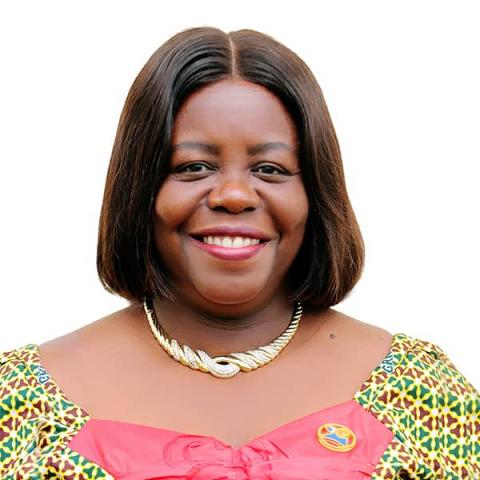 | Perpetual Ofori-Ampofo is the President of the Ghana Registered Nurses and Midwives Association (GRNMA) with 25 years of experience in Ghana’s health sector and over 15 years in trade unionism. She is a Nurse Educator teaching at the Nursing and Midwifery Training College at Korle-Bu for the past 18 years. She holds a Master of Public Health, a Bachelor of Arts degree in Nursing with Psychology from the University of Ghana, Legon, and a Post Graduate Diploma in Education from the University of Cape Coast. |
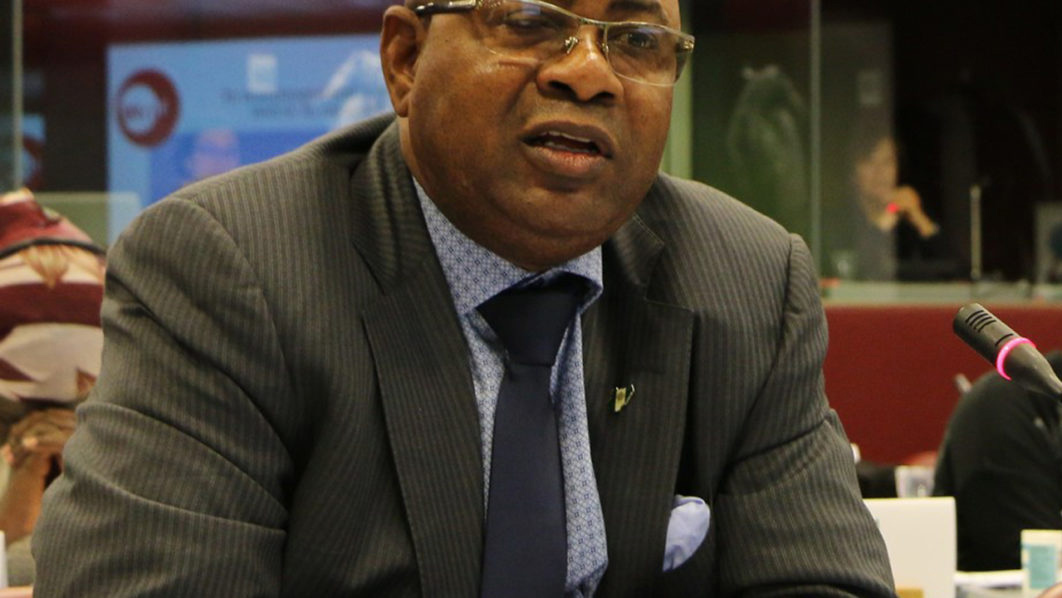 | Prince Peters Adeyemi is the General Secretary of the Non-Academic Staff Union of Educational and Associated Institutions (NASU) in Nigeria. Adeyemi has been actively involved in union advocacy, public negotiations, and national discussions related to workers’ welfare, minimum wage, and cost of living issues affecting his members. |
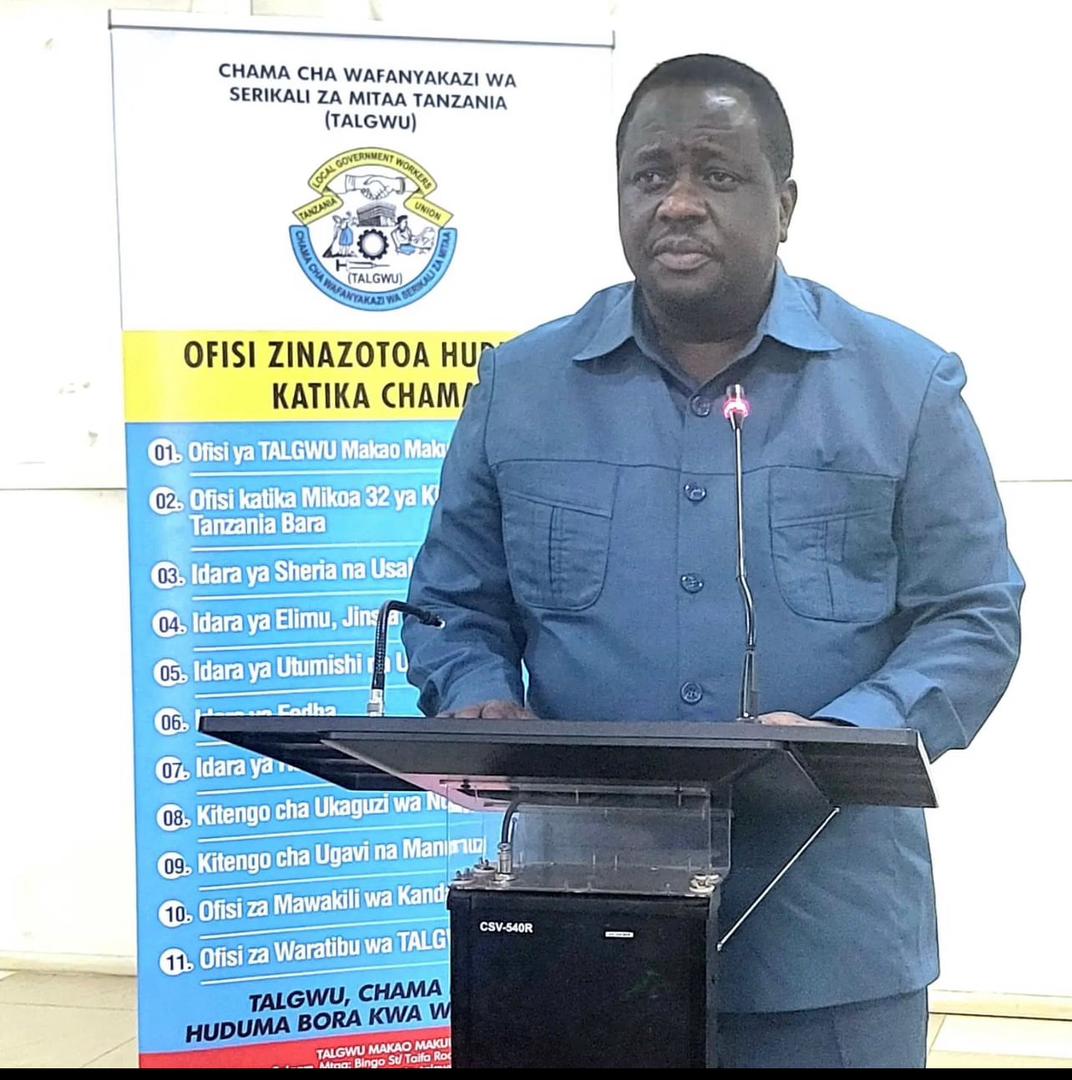 | Tumaini Peter Nyamhokya is the President of the Trade Union Congress of Tanzania (TUCTA), the national umbrella body representing the majority of unionized workers in mainland Tanzania. TUCTA comprises the principal trade unions in Tanzania and leads national advocacy for labor rights and social protection, with membership drawn from sectors including public service, education, local government, and more. |
 | Séverine Picard is the founding director of Progressive Policies, and the coordinator of the Network of Unions for Tax Justice. She is a lawyer with nearly two decades of experience in European and global policies. From 2007 to 2021, she provided senior legal and policy advice to the labour movement. She previously worked at the European Parliament and in the NGO sector in a research role related to the European Union. |
 | Mohammed-Anwar Sadat Adam is an interdisciplinary development professional with 15 years experience in strategy and program leadership, organizational development for civil society and local government, gender, governance, social accountability, development evaluation, and policy analysis for advocacy and policy influencing and reform processes in Ghana and beyond. He currently serves as Country Director at Oxfam in Ghana. |
 | Jesse Saidu is Communications Coordinator for Africa & Arab Countries. |
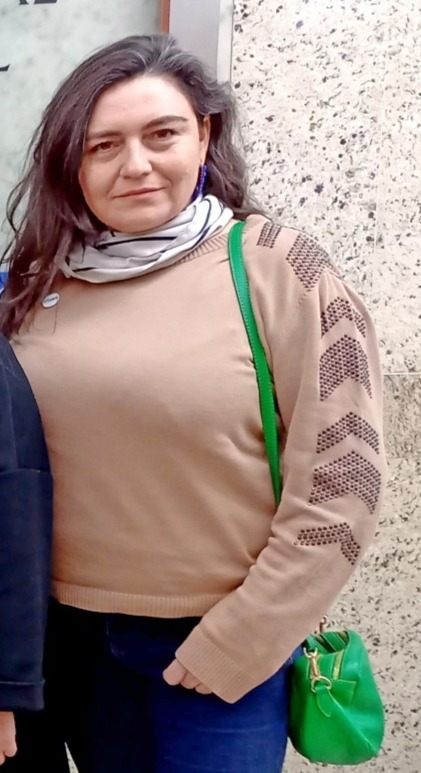 | Paola Maria Tresoldi Manriquez is the National President of the Asociación de Fiscalizadores de Impuestos Internos de Chile (AFIICH), the professional association representing auditors and inspectors of the Chilean Internal Revenue Service. |
 | Anne Wanyagathi Maina is a tax expert with extensive experience in tax policy, tax administration, and international tax reforms. She is a Research Consultant in Tax at the South Centre, supporting developing countries in international tax negotiations and contributing to technical work on broader international tax issues affecting the Global South including taxation of digitalized economy, wealth taxation, and resource taxation. |
 | Bert Zuijdendorp heads the 'Company Taxation Initiatives' unit in the European Commission's Taxation and Customs Union Directorate-General. He is in charge of EU directives and policy initiatives in the area of corporate taxation. Recent legislative initiatives include the December 2021 proposal to transpose the international agreement on minimum effective taxation (Pillar 2 Directive) and the September 2023 proposals for ‘Business in Europe: Framework for Income Taxation’ (BEFIT) and Head Office Taxation for SMEs (HOT). Before joining the European Commission services, Bert Zuijdendorp held various positions in the Dutch Ministry of Finance in both national and international tax policy. |
.............................................. | .............................................. |
Transport details
From Kotoka International Airport (ACC) to Central Hotel
Free airport shuttle services are available to all three official AFRECON hotels (Kempinski, Alisa, and Central Hotel) for AFRECON attendees. Upon arrival, look for hotel representatives in the arrivals hall holding an AFRECON placard.
Return shuttles to the airport will also be available after the Forum, please ask the Forum organisers for details.
Local transport
All Forum sessions will take place at the Central Hotel.
If you are not staying there and require transport to attend, please contact Forum organisers to make arrangements.
Dinner (Sunday, 9 November – Afrikiko River Front Resort, Akosombo)
A group shuttle will depart from outside the Central Hotel at 6:30 p.m. for the dinner at Afrikiko River Front Resort (Akosombo).
The return shuttle will leave Afrikiko at 9:00 p.m. to bring participants back to the Central Hotel.
Interpretation
Simultaneous French ↔ English interpretation will be available throughout the Forum for all sessions.
Spanish interpretation will be provided during the session “Make change at home (1) – from protest to Parliament: leveraging union influence at all levels” on Sunday, 9 November, from 14:30 to 16:00.
Interpretation will be available on Zoom in English and French throughout the event, and in Spanish during the above session.